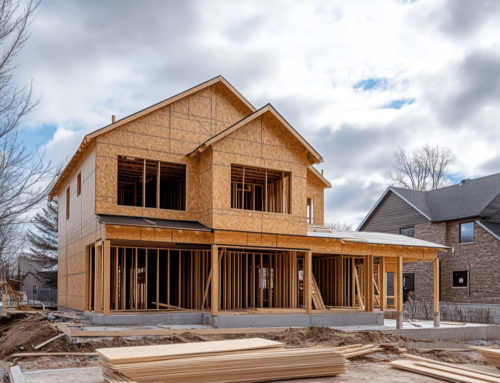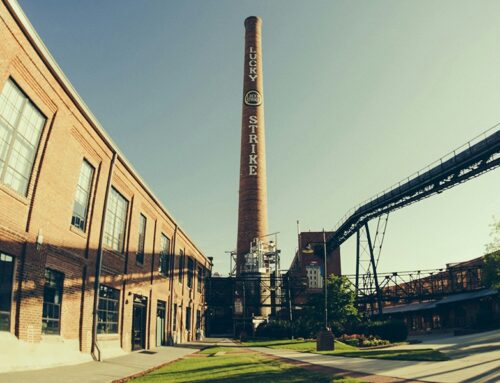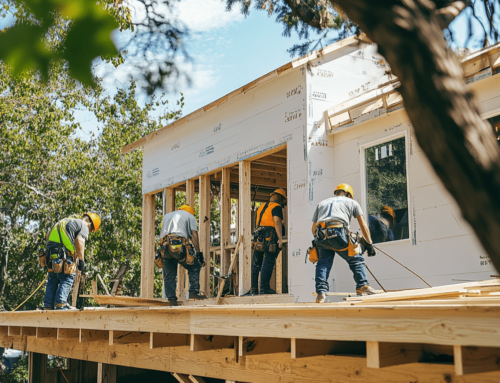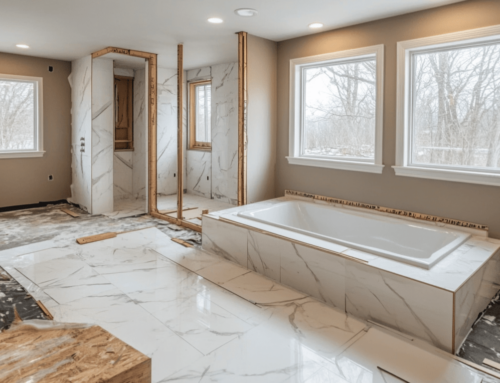There are many ways that people use accessory dwelling units (ADUs). Some use it as a guest suite for friends and family members. Others use theirs as an art or music studio. Some small business owners run their company from their ADU.
But perhaps the most popular use for an ADU is as an income-generating rental property. Due to their relatively-low cost, ADUs – also known as in-law suites or granny flats – can serve as a much lower entry point into the rental market and leave more room for profit than buying an additional property to rent out.
You can make a significant income from renting out your ADU in many cases. However, it’s not a guarantee and there is more involved in doing so than many people realize at first. That’s why we put together this guide to help you make your rental investment a success.
Requirements For Using Your ADU as a Rental Property
You can’t just throw up any structure you want on your property and put it on the market – at least not legally. You’ll first have to determine if you are allowed by your city or town and, if you belong to one, your HOA to build an ADU on your property. There are federal, state, and local laws that stipulate the requirements of a rental property and your responsibilities as a landlord.
While these regulations vary between places, they tend to cover some general requirements that include:
- Your ADU must support independent living: Any rental unit must offer all of the features needed for independent living. At a minimum, this means that it must have a bathroom, a kitchen, and a space that serves as a bedroom. Some localities have additional requirements, such as closets.
- The unit must have an independent entrance: Rental units must have a completely separate entrance from the primary dwelling. In most cases, you do not need to provide separate parking, but you will need to provide a path to the unit that doesn’t require the renter to cross through your private space.
- Your structure must comply with local codes: Rental properties are subject to local building codes that specify everything from the number and size of windows to the width and incline of stairways.
- Rental units must connect to infrastructure: To legally rent your ADU, it must be connected to the electrical grid, water supply, and a sewer or septic system. You may not have to separate these utilities from your own, but in general it is good practice to do so and simplifies billing for both parties.
- You must adequately maintain the property: As a landlord, you will be responsible for maintaining the property and fixing issues that arise in a timely manner.
These are just some of the most important requirements for renting your ADU. Your city or town will likely have many more requirements that you’ll need to comply with. Be sure that you fully understand all of these requirements before putting your ADU on the market.
The True Costs of Managing a Rental Property
It’s easy to do quick math and simply subtract your financing payments from the monthly rent to determine your profit. However, there are many more costs to owning and maintaining a rental property than just paying for the property itself. Some of the most notable costs include:
- Property taxes: In most cases, you do not have to pay a separate property tax on your ADU. However, since an additional structure adds value to your property, the tax you’re responsible for will likely go up at your next assessment. You should consider this increase one of the costs of doing business.
- Maintenance: Maintaining a property can have many expenses. This means fixing problems that arise such as broken fixtures, but it also includes small things that can add up like changing light bulbs or air filters.
- Legal fees: A lease is a legal agreement, and unless you’re an attorney, you’ll need to pay someone to draft an official document for you. This document may need to be updated periodically. In addition, you may need legal help from time to time if significant problems arise, such as a renter who has not paid rent.
- Income tax: You are required to report all earnings to local, state, and federal tax authorities. This includes rental income. Be sure to factor in these taxes when projecting your potential profit.
- Insurance: In many cases, you’ll need to carry additional insurance on your rental property. These policies are typically a little more expensive than homeowners insurance because they cover additional liability.
- Management fees: You can manage your own property if you want, but doing so is often more work and takes up more time than most people realize. Hiring a management company can take this work and responsibility out of your hands and simplify things for you. Most companies charge somewhere around 10% of the monthly rent to manage a property.
You will find that renting a property comes with more costs than even the ones listed above. It is good practice to overestimate the costs of renting out your ADU and prepare for the worst case scenario to avoid situations where you need to pay for something you can’t afford.

Long-Term vs. Short-Term Rental: What To Consider
Generally speaking, there are two rental models you can use to generate income. Long-term rentals involve a renter signing a lease for a predetermined amount of time. A short-term rental is one that you rent out periodically, often through services such as AirBnB or VRBO.
Which model is best for you and your property depends on a few key factors. There are advantages and disadvantages to each.
Long-Term Rental Pros and Cons
| Long-Term Rental Pros | Long-Term Rental Cons |
|---|---|
| More consistent income | Lower income ceiling |
| Less day-to-day management | More legal responsibilities and requirements |
| Fewer renters to deal with | Less flexibility |
Short-Term Rental Pros and Cons
| Short-Term Rental Pros | Short-Term Rental Cons |
|---|---|
| Higher profit potential | Requires more frequent upkeep |
| Fewer legal requirements and responsibilities | Income is less consistent |
| Allows you to use your property when you want | More people going in and out of a property close to your home |
How To Maximize Rental Income From Your ADU
If you are spending the money to build an ADU to use as a rental unit, or upgrade one you already have, it’s worth trying to make as much return as you can. There are a few steps you can take to get top dollar for your rental unit that are worth considering.
Research Your Market
Taking the time to learn rental rates for comparable properties and other market factors such as occupancy rates is an important part of the process. Understanding your local market can help you settle on the maximum rent you can charge and still ensure your property gets rented. These days, there are many online tools that can provide all the information you need to make a sound decision about your rental rate. Some of these tools can even suggest the ideal rate for you.
Choose the Best Rental Model For Your Situation
Short-term rentals have the potential to make more profit than long-term rentals, but long-term rentals tend to provide more predictable income. Different markets are better suited for different models.
For example, if you live near a university, there is a high probability that you can rent your ADU long-term to students, faculty, staff, and local service workers quickly and consistently. If you live in an area with a lot of tourism year-round, you likely won’t have a hard time renting your unit short term.
It’s also good to take into account whether or not you’ll want to use your property on occasion to host guests. If you do, a short-term rental makes more sense since you can block off dates that you want to use your ADU.
Enhance Privacy
One of the disadvantages of an ADU as a rental property is that they usually offer less privacy than an independent home. However, you can make your unit more private by erecting a fence or planting trees or bushes that provide a visual barrier between your home and the rental property. Making your ADU more private can help command a higher rental fee and make it more attractive to prospective tenants.
Make Aesthetic Upgrades
These days, most people search for rental properties online and base their decisions on what they see in listings. Spending a little money to make aesthetic improvements can increase what you’re able to charge for both a long-term and short-term rental.
Inexpensive improvements such as a fresh coat of paint or landscaping can increase the rental value of your ADU. If you’re willing to spend a little more to install some higher-end features that are popular with people such as granite countertops or recessed lighting, you can increase the rental value even more. The money you spend on these improvements are usually worth the investment.
Take High-Quality Photos
Again, most people make their rental decisions based on the photos they see online. At the very least, photos of your ADU are the first impression you give to prospective renters.
No matter how nice your ADU is, poor-quality or even average photos can decrease its appeal and even its rental value. Make sure to get high-resolution, well-lit, and well-framed photos that make your property look spacious and vibrant. If you’re not much of a photographer, you should be able to find real estate photographers in your area you can pay to take professional photos. While this comes at a cost, good photos of your property are the best advertisement for it and a worthwhile investment.
Consider Using a Property Management Firm
Hiring a property management firm does reduce your profit by taking a percentage of the rental fee. However, like many things, you’ll get better results when you hire a professional.
Property management companies are professionals when it comes to figuring out the maximum rent you can charge, advertising your property effectively, and taking care of administrative tasks such as managing your slush funds and even generating tax documents. Much like paying an accountant to do your taxes can often save you money by finding ways to minimize your tax liability, hiring a management firm can ensure that you get max value for your property and spend as little as possible to manage it.
ADUs Can Generate Substantial Rental Income If You Do It Right
With lower costs on average than independent properties and a certain “cool factor” that some renters seek out, an ADU can be a profitable investment as a rental property. However, it’s best to think of your rental property as a small business with many of the same risks and potential pitfalls as any other business. Like any business, managing a rental property is more expensive, more involved, and more complicated than most people realize.
Be sure to do your market research to see what – if any – potential profit there is to be made from building an ADU on your property. In many markets, an ADU can bring in a sizable income as a rental property, but that’s not true everywhere. Even though they cost considerably less than buying an additional property, building an ADU is still a significant investment that comes with a lot of risk. A good ADU contractor can help you understand all of the costs and risks involved in building a rental unit on your property and assist you with many other steps in the process.






Leave A Comment